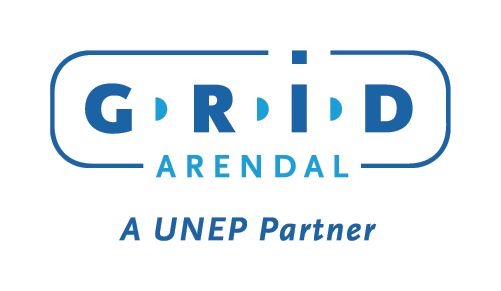Press release -
Seagrass meadows are our biggest allies in the fight against climate change
Healthy West African seagrass ecosystems can help sustain coastal livelihoods, and slow down climate change globally.
New groundbreaking work by GRID-Arendal and its partners shows why seagrass is vital for conserving West African biodiversity and protecting its coastline.
- We have managed to develop strong local capacity among managers, students and researchers in the seven countries (Mauritania, Cape Verde, Senegal, The Gambia, Guinea-Bissau, Guinea and Sierra Leone), and they are now ready to scale up the work and ensure policy changes are enforced to better conserve these underwater treasures says Iderlindo Santos, ResilienSEA regional coordinator.
- When we started this project in 2018, Mauritania, Cape Verde and Senegal were the only countries in the region to have documented some of their seagrass meadows´ distribution. Four years on, all seven countries have discovered, identified, mapped and monitored seagrass ecosystems in their pilot sites, adds Marco Vinaccia, Climate Change Expert at GRID-Arendal.

- Through strong engagement with local communities, ResilienSEA has sensitized them on the value of protecting this crucial ecosystem for their livelihood, both in terms of food security and of protection against climate induced sea level rise and storm surges, says Marco Vinaccia.
A new global framework for managing nature sustainably, the Global Biodiversity framework, is under process, but the UN calls for all countries to protect at least 30 percent of land and sea by 2030. Ecologically or Biologically Significant Areas (EBSAs) like the seagrass meadows identified in the seven pilot sites need a strong political and financial commitment for their protection.
Putting West Africa on the global seagrass map
- Now the hope is that decision makers in the region will act on the policy briefs and recommendations the project has developed, by creating new MPAs, including seagrass conservation into existing MPAs´ management plans, and agreeing to a regional seagrass protocol to protect seagrass meadows across West Africa, explains Marie-Suzanne Traoré, RAMPAO Secretary General.
This Atlas tells the ResilienSEA story and shows how much progress has been made since 2018 in each country; the new meadows discovered, the successes and challenges that the project had along the way, and how local capacity has been developed to a point where local experts can work autonomously.
- We are putting West Africa on the global seagrass map, showing the world´s researchers the potential for further work in the region in the coming months and years. This product is a starting point, and with more data and information, we can better protect these vulnerable ecosystems, says Marco Vinaccia, who is presenting the Atlas on behalf of the project at the exclusive pre-launch during the World Seagrass Conference in Annapolis, Maryland, from 7-12 August 2022.

About the project:
The ResilienSEA project has run since 2018, and its Phase II is coming to a close. This Atlas tells the ResilienSEA story; it shows how much progress has been made since 2018 in each country, the new meadows discovered.
After four years of scientific research, data collection, monitoring, capacity building, raising awareness, informing, sensitizing, and advocacy work, the project team is publishing the first seagrass atlas in West Africa. This work was only made possible through the contribution and collaboration of the MAVA Foundation, Wetlands International, the Network of Marine Protected Areas in West Africa (RAMPAO), and the national implementation teams in all seven countries. The Atlas´ editor-in-chief, Olivia Polkinghorne, led the process from start to finish in the past few months and deserves most of credit for the final product.

FACT of Seagrass
Seagrass is a vital ecosystem, as it provides essential services and benefits such as, coastal protection from storm surges, nursery for fish and other biodiversity, food for seaturtles and dugongs, high levels of carbon sequestration, and an improved and less acidic water quality.
Related links
Topics
- Environment, Energy
Categories
- seagrass
Any questions?
Please contact:
press@grida.no
Head of Media Relations
Maria Dalby
+47 9064 0556
Maria.dalby@grida.no
